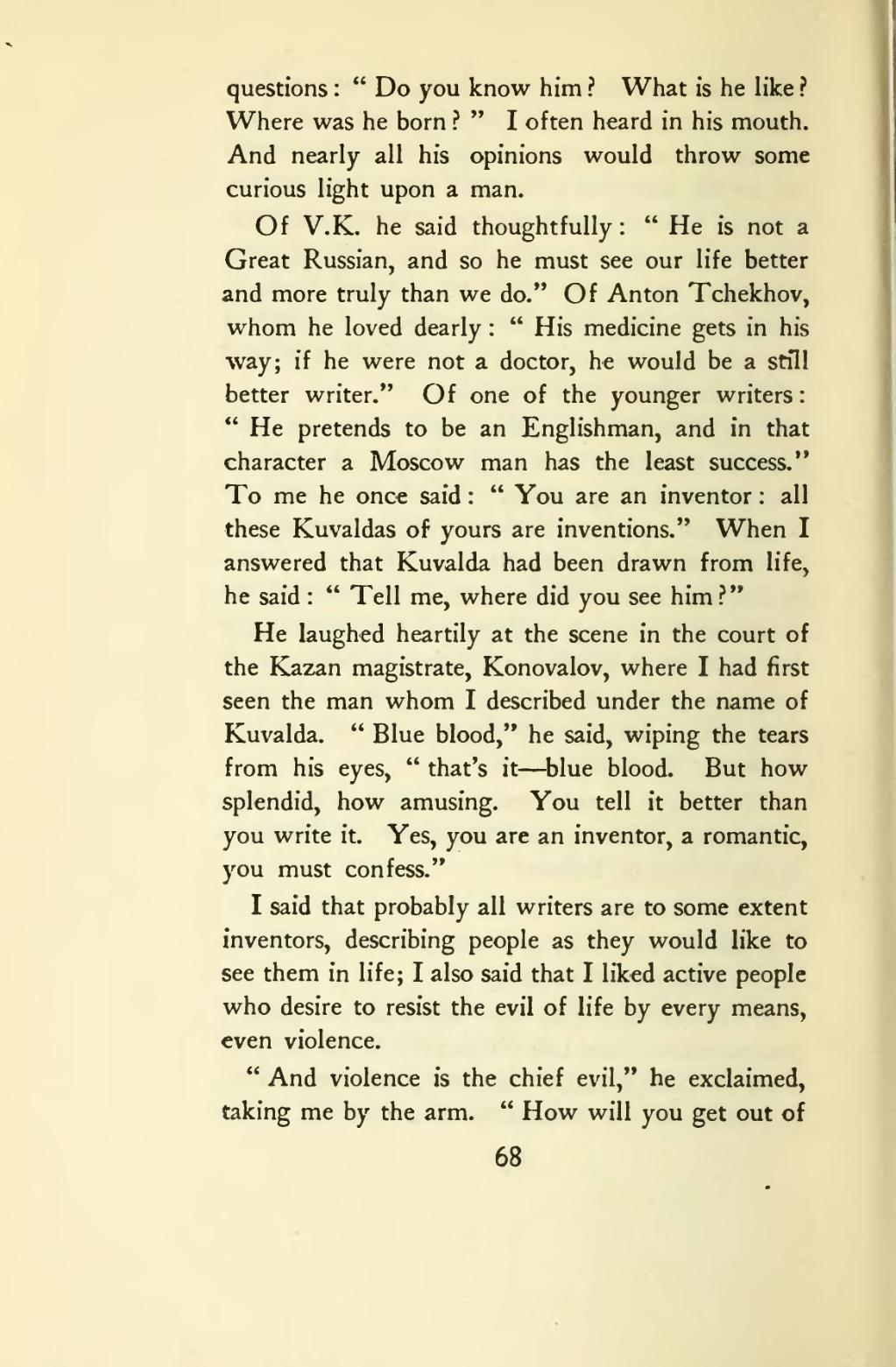questions: "Do you know him? What is he like? Where was he born?" I often heard in his mouth. And nearly all his opinions would throw some curious light upon a man.
Of V.K. he said thoughtfully: "He is not a Great Russian, and so he must see our life better and more truly than we do." Of Anton Tchekhov, whom he loved dearly: "His medicine gets in his way; if he were not a doctor, he would be a still better writer." Of one of the younger writers: "He pretends to be an Englishman, and in that character a Moscow man has the least success." To me he once said: "You are an inventor: all these Kuvaldas of yours are inventions." When I answered that Kuvalda had been drawn from life, he said: "Tell me, where did you see him?"
He laughed heartily at the scene in the court of the Kazan magistrate, Konovalov, where I had first seen the man whom I described under the name of Kuvalda. "Blue blood," he said, wiping the tears from his eyes, "that's it—blue blood. But how splendid, how amusing. You tell it better than you write it. Yes, you are an inventor, a romantic, you must confess."
I said that probably all writers are to some extent inventors, describing people as they would like to see them in life; I also said that I liked active people who desire to resist the evil of life by every means, even violence.
"And violence is the chief evil," he exclaimed, taking me by the arm. "How will you get out of
68

